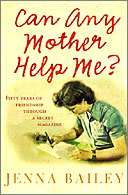 The Immortal Life of Henrietta Lacks - Rebecca Skloot
The Immortal Life of Henrietta Lacks - Rebecca Skloot Amazon Best Books of the Month, February 2010: From a single, abbreviated life grew a seemingly immortal line of cells that made some of the most crucial innovations in modern science possible. And from that same life, and those cells, Rebecca Skloot has fashioned in The Immortal Life of Henrietta Lacks a fascinating and moving story of medicine and family, of how life is sustained in laboratories and in memory. Henrietta Lacks was a mother of five in Baltimore, a poor African American migrant from the tobacco farms of Virginia, who died from a cruelly aggressive cancer at the age of 30 in 1951. A sample of her cancerous tissue, taken without her knowledge or consent, as was the custom then, turned out to provide one of the holy grails of mid-century biology: human cells that could survive--even thrive--in the lab. Known as HeLa cells, their stunning potency gave scientists a building block for countless breakthroughs, beginning with the cure for polio. Meanwhile, Henrietta's family lived in innocence, and when they began to find out the background story.........
~
I was fascinated, horrified, intrigued. Henrietta Lacks died from a particularly virulent kind of cervical cancer in 1951. This is the story of Henrietta Lacks, her family, and the cells which were taken from the tumour. She was poor, working the tobacco farm that her family owned, not always able to sell all of the tabacco they grew. The lived in a small all-black town where cousins married cousins, or had babies with cousins, generation after generation. Rebecca's children were all partially deaf, including her first child, who was institutionalised, and died after her mother at age 15. Rebecca's remaining children were grown when they first starting hearing about HeLa, the cells taken from Henrietta, and they had no money or education to fight for their mother's name, nor for education about the things they read, and this caused many misunderstandings. Rebecca Skloot, a scientific journalist, spent several years of her early career, and filed several filing cabinets putting together the information that makes up this book. Enjoy it? I did, racing through every page. It was harrowing in parts, not least the descriptions of Deborah, who had devoted her life since she found out (following a BBC crew interviewed her about her mother for a programme aired as recently as 1996) more about how the cells were being used, how they had been obtained in the first place, and how the knowledge that part of her Momma was "still alive" nearly unhinged her. It is a true story of medicine, research, racism and poverty. Henrietta's cells helped with the cure for polio, they invaded nearly every major lab in the world, they are used towards the work foar the curing of cancer, AIDs, and other serious conditions. They live, and therefore so does Henrietta.
And then I also recommend:

If you contribute to website forums, you may, like me, see this as a forerunner to that kind of interaction. For me, a lovely slice of history that will take a long time to forget.

Well you have tempted me to look out for another book, because I just don't have enough already!! Xx
ReplyDeleteSorry, my transatlantic friend, but this is the intention! Tell me what you thought later. x
ReplyDelete